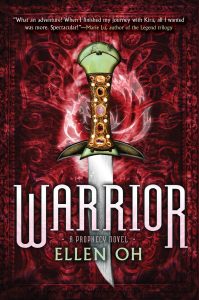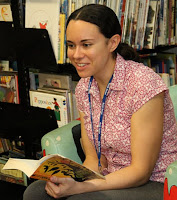Year: 2013
-
‘The Fall of Five’ Is August’s Most-Discussed Book on Social Media
“Speaking of The Fall of Five, which was published by HarperCollins on Aug. 27, Jeff Costello, v-p of CoverCake, said, ‘This book just kept picking up momentum all month as …
-
Dare to Dream…Change the World Contest Launches for 2013-2014
View the contest flyer with guidelines▸▸ FOR IMMEDIATE RELEASE DARE TO DREAM…CHANGE THE WORLD CONTEST LAUNCHES FOR 2013-2014 Jill Corcoran, compiler and contributing poet to the award-winning Dare to Dream…Change …
-
‘Oh, the Places You’ll Go!’, Digitally
For Immediate Release RANDOM HOUSE CHILDREN’S BOOKS TO PUBLISH DR. SEUSS’S CLASSICS AS EBOOKS FOR THE FIRST TIME 41 Dr. Seuss Ebooks to be released in September, October, November 2013, …
-
The Atlantic Avenue Children’s Literature Contest Seeks Entries
“The (inaugural) Atlantic Avenue Children’s Literature Contest! Calling aspiring picture book authors from Brooklyn and beyond! The merchants of Atlantic Avenue, Brooklyn’s favorite ‘main street’, are offering you the opportunity …
-
Ellen Oh Explains “Why It Is Okay to Tackle Diversity”
“I want to talk to you about why it is okay to “tackle diversity.” If you are the type to say, “Yes, I want to include diversity! I just don’t …
-
This Week on Girls Scouts’ The Studio: ‘The Ever Afters’ Author Shelby Bach
“I discovered that my favorite writers’ early drafts weren’t nearly as amazing as their finished books. Once they wrote something, they did everything they could to make their writing better. …
-
Houghton Mifflin Harcourt for Young Readers Hosts “Draw a Quarkbeast” Contest
“A QUARKBEAST is a small hyena-shaped creature with shiny-leathery scales, often described as one-tenth Labrador, six-tenths velociraptor, and three-tenths kitchen food blender. But what does it look like, exactly? Now’s …
-
Lambda Literary Foundation Opens Award Submissions
“The Lambda Literary Foundation announced the opening of book submissions and revised submission guidelines for the Lambda Literary Awards, which celebrates the best in lesbian, gay, bisexual and transgender literature. …
-
Sara Zarr & Tara Altebrando Collaborate on a Young Adult Novel
The story features “alternating perspectives to great effect as they portray a budding friendship between two young women on opposites sides of the country. Self-assured, with a boyfriend and an …
-
SCBWI Announces the Winners of the Annual SCBWI Work-in-Progress Grants
FOR IMMEDIATE RELEASE The Society of Children’s Book Writers and Illustrators in conjunction with a generous grant from Amazon.com, congratulates the winners of the 2013 Work-In-Progress Grants in the following …
-
William Steig Goes Digital
Young readers can now discover William Steig’s beloved work on their tablets, as FSG has released fourteen of his titles as e-books. The Steig picture books now available as e-books …
-
Why Audiobooks Should Be Included in Your Home Library
Audiobooks are a great way to foster literacy and instill an appreciation for stories. This post at Scholastic Parent & Child outlines some of the many great reasons to include …
-
Two Actors Cast for the ‘Fallen’ Movie
Two actors have been cast for the adaptation of Lauren Kate’s Fallen. Addison Timlin will play Lucinda “Luce” Price and Jeremy Irvine will play Daniel Grigori. The Fallen book was …
-
Entertainment Weekly Offers Exclusive Excerpt of Laurie Halse Anderson’s Latest Novel
“The Impossible Knife of Memory, Laurie Halse Anderson’s latest YA novel, debuts Jan. 7, 2014. The book centers around high school senior Hayley whose single father, Andy, struggles to escape the …
-
8th Annual Brooklyn Book Festival Honors Celebrated Youth Author Lois Lowry
FOR IMMEDIATE RELEASE BROOKLYN, NY, August 20, 2013: Today, Brooklyn Borough President Marty Markowitz, the Brooklyn Literary Council and Brooklyn Tourism announced that the eighth annual Brooklyn Book Festival, …
-
Evan Ross, Son of Legendary Singer Diana, Lands Role in “Mockingjay”
Evan Ross, 25-year-old son of legendary singer Diana Ross, will play Messala in the film adaptation of Hunger Games continuation Mockingjay, parts 1 and 2. In the book, Messala is …
-
Penguin to Publish Bestselling Swedish Children’s Mystery Series
FOR IMMEDIATE RELEASE The Whodunit Detective Agency by Martin Widmark scheduled for publication in August 2014 August 26, 2013 – Penguin Young Readers Group has acquired North American rights to the …
-
Learn More About Patricia Polacco, Author of ‘The Blessing Cup’
Nearly three decades ago, Polacco’s mother financed a trip for her to go to Manhattan to try to get a publishing deal. Polacco set up 16 meetings in one week, …
-
Microaggressions: Those Small Acts that Pack a Big, Negative Punch
Guest post by children’s librarian at Bank Street College of Education, Allie Jane Bruce.
More and more, the word “microaggression” is cropping up in the world of children’s literature. A “microaggression” —a term coined by Harvard professor Chester M. Pierce in 1970 — is a tiny act of bigotry. Examples include crossing the street when a dark-skinned stranger appears, giving a groan when the word “Feminism” comes up, or using “homo” as a synonym for “uncool” (Pierce used it to describe only race-related acts, but the word has evolved to encompass bigotry in general). Viewed individually, these acts are almost negligible; taken as a whole, they constitute an evolution of the very nature of bigotry, from overt, conscious and public bigotry to a more nebulous form that is hard to identify and even harder to acknowledge (Sue et al, 2007).
We who work in the field of children’s literature—librarians, teachers, booksellers, authors, illustrators, bloggers, publishers—must be aware of microaggressions. We constantly read aloud, recommend books, and do everything in our power to turn kids into bookworms. As fervently as we extoll the benefits of reading, we must also consider whether the books we love confirm kids’ dignity and worth as human beings, in ways small and large.
What one person perceives as a microaggression may be a non-entity to another. At what point does an incident become a microaggression? What responsibility do I, as a librarian and teacher, have to filter out potentially harmful books? Is it better not to read something hurtful—or to read it, and then discuss it? These were questions with which I wrestled after a read-aloud incident a few months ago.The book I chose was Betsy Lewin’s You Can Do It. There is much to love in this story of an alligator who, cheered on by a good friend, overcomes a bully to win the race. But a seemingly-miniscule element—a hair ribbon—produced a heartrending effect on a member of my audience.The kindergarten group I read to included a girly-girl. A very girly girly-girl. We’ll call her Charlotte. Charlotte loves to read, has a shy smile, likes a good hug, and almost always wears ribbons in her hair. As I held up the book, she observed the ribbon-wearing alligator and smiled. I showed the title page and cleared my throat, but before I began reading, an argument broke out. Which character was saying “You can do it!”, and which was the “doer”? The differences of opinion arose because although the cover makes it clear that the alligator wearing the ribbon is saying “You can do it!”, the title page suggests the opposite; it appears that the bare-headed alligator is leading the be-ribboned alligator to something that she will, presumably, do. Charlotte was adamant that the alligator with the ribbon would be the “doer”. “Let’s find out,” I said, and we began.As we read, the kids who had guessed correctly—the ribbon-less alligator is the “doer”—celebrated their victory with smiles and “yes!”es. Most of those who had guessed wrong gave a little groan and then recovered. But Charlotte’s face grew dark. Her chin dropped. Her eyes found the floor. Her whole body curled inward. And she gave a tiny, angry tug at the ribbon in her hair.Charlotte’s reaction cut straight to my bone. I wondered what was going on in her head. Anger at being wrong? Probably, but was there something else? Was it shame that she was, due to a fashion choice, now classified as a cheerleader rather than a doer? Did she now believe that to have any chance of winning a race, she must remove her ribbon? Or did she extrapolate that girls en masse (after all, the presence of the hair ribbon does, to the casual reader, indicate gender) have no business being doers?I tried to salvage it. I pointed out that we didn’t know whether the main character was a boy or girl. Maybe they were both girls! No luck. In the world of picture books (reinforced over and over again, particularly with animals), the clothes make the gender. And even if we did accept that both alligators are female, Charlotte might have been thinking, “female alligators can do it, but not those who wear ribbons”.I do not know what was in Charlotte’s head, and if not for the look on her face and her extreme body language, I would not have engaged in any sort of analysis after reading this book to the class. It is possible that my response is overly sensitive to Charlotte’s reaction, or that Charlotte’s reaction had to do only with guessing wrong. Ultimately, when analyzing for microaggressions (or, for that matter, macroaggressions), the question is “what effect does this have on its audience?” In this case, You Can Do It positively affected most of the children in my group, who enjoyed the fun, inspiring story. My impression of Charlotte, however, was that she seemed to feel devalued and type-cast. And this reaction—even if it was just Charlotte’s—is valid and deserves consideration. It may or may not rise to the level of “microaggression” classification but, either way, it is a helpful place to start an important conversation because seemingly small slights sometimes pack a disproportionately big punch.
In my opinion, the most dangerous thing about microaggressions is that the dominant group (eg white people, straight people, men, highly educated people…) often can’t see them at all. They see only a person from the non-dominant culture go to pieces or start a fight over something that looks negligible. They say, “Wow. ______ people are so sensitive!” or “Why do you have to be so angry?” Those who experience such feelings then start to believe that their anger is not legitimate, that they are overly sensitive, that the smothering blanket of microaggressions they are wrapped in is their rightful burden.
Teachers, librarians, and parents: Have you ever had an experience similar to the one I describe? How did you handle it? What conclusions did you draw? Microaggressions are hard to think about and harder to talk about. But we need more conversation, not less. Let’s get started.
References
Pierce, C. M., Carew, J. V., Pierce-Gonzalez, D., & Wills, D. 1977. An experiment in racism: TV commercials. Education and Urban Society, 10, 61–87.
Sue, D.W., Capodilupo, C. M., Torino, G. C., Bucceri, J. M., Holder, A. M. B., Nadal, K. L., & Esquilin, M. 2007. Racial microaggressions in everyday life: Implications for clinical practice. American Psychologist, 62, 271-286.
Allie Jane Bruce is Children’s Librarian at the Bank Street College of Education. She began her career as a bookseller at Politics and Prose bookstore in Washington, D.C. and earned her library degree from Pratt Institute. She tweets from @alliejanebruce and blogs at http://bankstreetcollegeccl.wordpress.com. -
Can Children’s Books Pass on a Sense of Empathy?
“When we read with a child, we are doing so much more than teaching him to read or instilling in her a love of language. We are doing something that …























